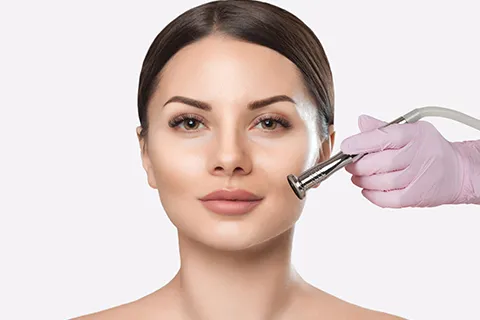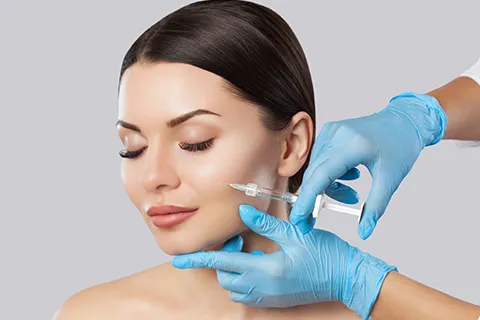These are deep, narrow scars that resemble small puncture marks on the skin
Boxcar scars are characterized by well-defined edges and appear as round or oval depressions with steep sides, often causing a pitted texture.
Rolling scars have a wavy or rolling appearance and are caused by tethering of the skin below.
Hypertrophic scars are raised, thickened scars that develop due to an overproduction of collagen during the healing process.
Causes of Acne Scars
- Inflammation: Inflammatory acne, such as cysts or nodules, can cause more severe scarring due to the increased inflammation and tissue damage associated with these types.
- Delayed or Inadequate Treatment: Failing to treat acne promptly or using improper treatment methods can prolong inflammation and increase the likelihood of scarring.
- Picking or Squeezing Pimples: Manipulating or picking at acne lesions can disrupt the healing process and introduce bacteria, leading to more significant inflammation and a higher risk of scarring.
- Genetic Predisposition: Inflammatory acne, such as cysts or nodules, can cause more severe scarring due to the increased inflammation and tissue damage associated with these types.
- Skin Type: Certain skin types, such as those prone to excessive oiliness or poor wound healing, may be more prone to developing acne scars.
- Dandruff and Scalp Issues: An oily scalp and excess sebum in the scalp can cause bacteria to affect the face as well.
Prevent Acne Scarring
- Avoid picking, popping, or squeezing pimples, as this can lead to further inflammation and increase the risk of scarring.
- Use gentle, non-comedogenic products that do not clog pores to treat acne and minimize the risk of scarring.
- Cleanse your skin regularly with a gentle cleanser suitable for your skin type.
- Exfoliate regularly to remove dead skin cells and prevent clogged pores.


At Vevara , we believe in a personalized approach to the best acne scar treatment. Our expert doctors will conduct a thorough evaluation of your skin, including scar type, severity, and your specific skincare goals. Based on this assessment, a customized treatment plan will be created, tailored to your individual needs. We prioritize your comfort, safety, and desired outcomes throughout the treatment process.
Not just treatments, but a holistic approach of supplement recommendation, acne kit, and noninvasive methods for painless removal such as chemical peel treatment for acne scars, and laser treatment is also offered. Check out the Acne Scar Treatments that we provide today!
